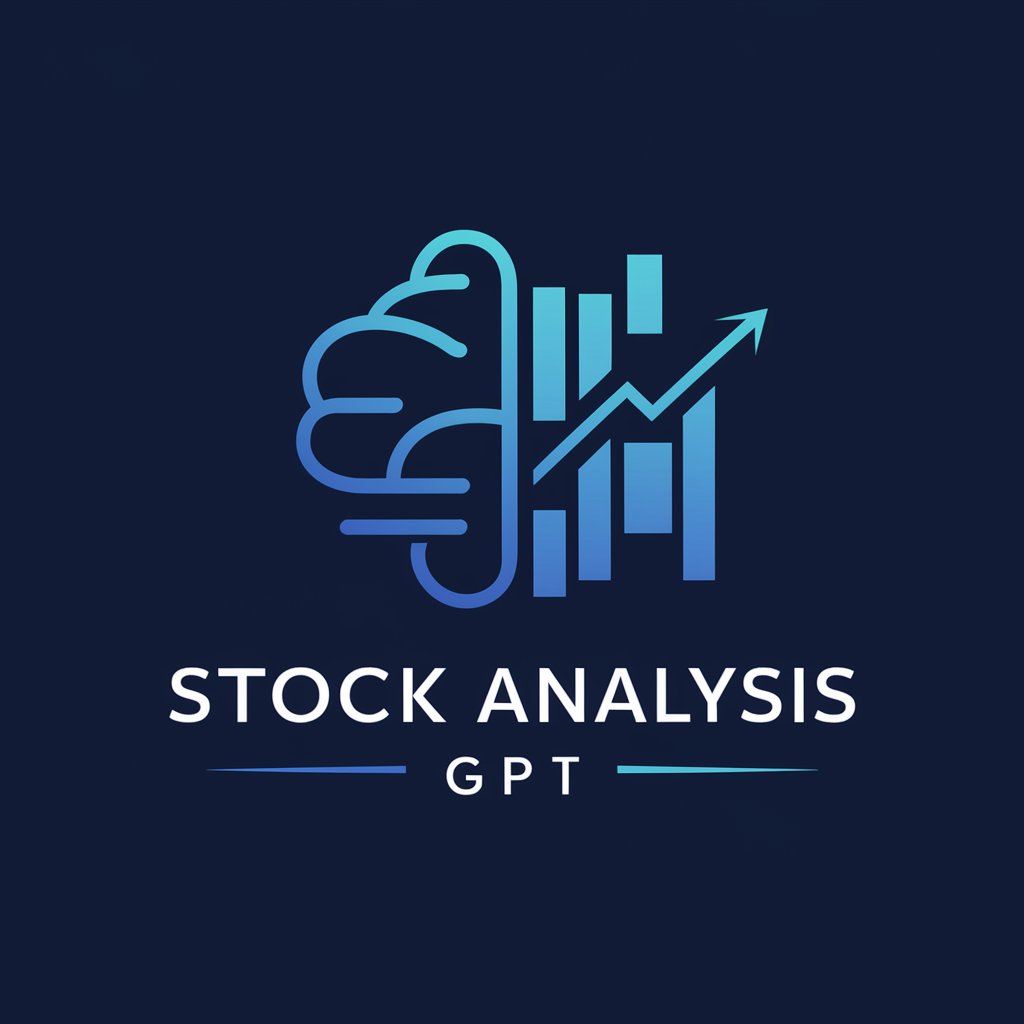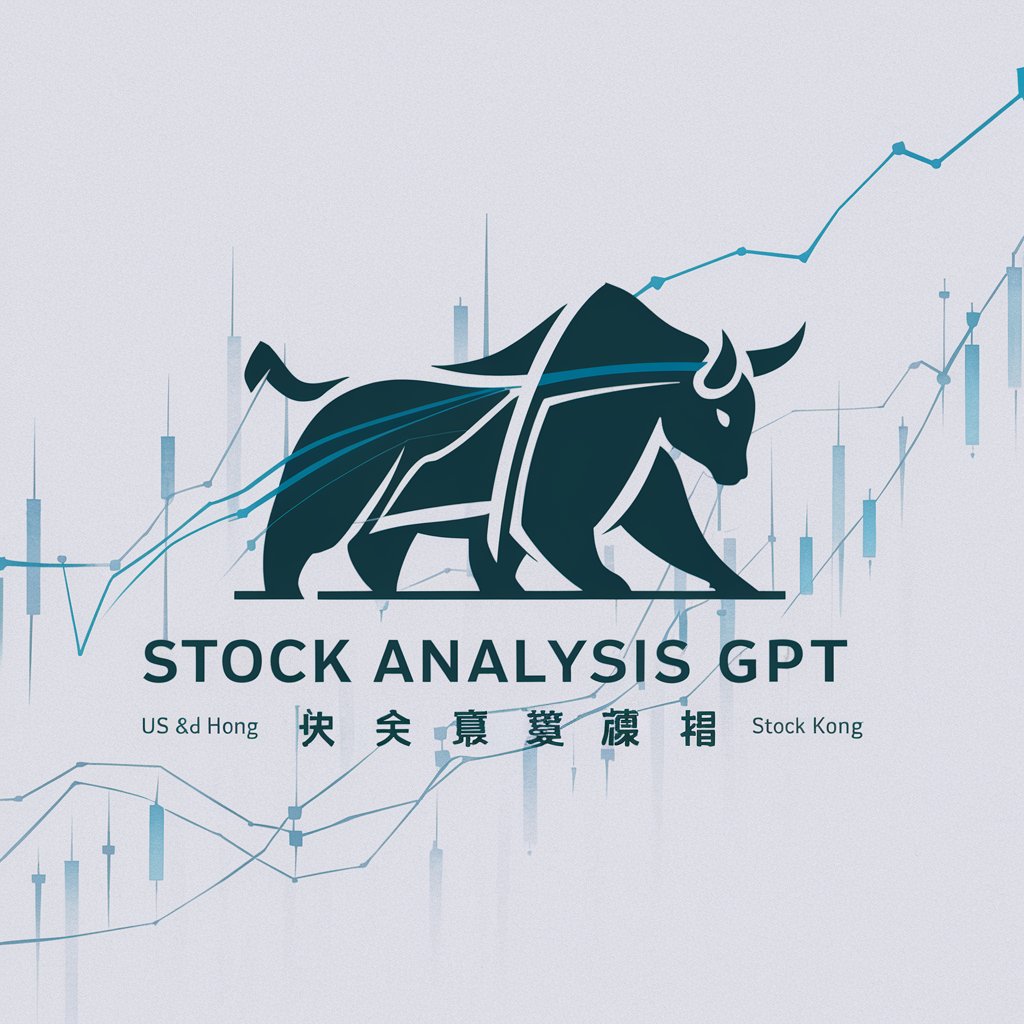
Stock Valuation GPT - In-Depth Stock Analysis Tool

Welcome to Stock Valuation GPT, your expert in investment analysis.
Empowering Investment Decisions with AI-Driven Insights
Explain the difference between intrinsic value and market value in stock valuation.
Describe the key principles of value investing according to Benjamin Graham.
How does the Discounted Cash Flow (DCF) model work in stock valuation?
What are the main risks to consider when investing in young, distressed companies?
Get Embed Code
Overview of Stock Valuation GPT
Stock Valuation GPT is a specialized AI tool designed for delivering in-depth insights into stock valuation. It leverages knowledge from leading finance texts and integrates up-to-date market data to offer comprehensive analysis. Its design purpose is to assist in interpreting financial statements, understanding market trends, and applying various valuation methods such as Discounted Cash Flow (DCF), relative valuation, etc. An example scenario could be analyzing a tech company's stock by examining its financial health, industry position, and applying DCF to forecast future cash flows and determine intrinsic value. Powered by ChatGPT-4o。

Core Functions of Stock Valuation GPT
Financial Analysis
Example
Evaluating a company's balance sheet and income statement to assess its financial stability.
Scenario
A user considering investment in a retail company can get an analysis of the company's debt levels, revenue growth, and profitability margins.
Market Trend Analysis
Example
Interpreting current market trends and their impact on stock prices.
Scenario
Analyzing the impact of a recent Federal Reserve interest rate hike on banking sector stocks.
Valuation Method Application
Example
Applying DCF or relative valuation methods to estimate a stock's fair value.
Scenario
For a user interested in a pharmaceutical company, applying DCF to project future earnings and discount them to present value, considering R&D investments and potential revenue from new drugs.
Risk Assessment
Example
Assessing potential risks associated with investing in a particular stock or sector.
Scenario
Evaluating the risks of investing in an emerging tech startup, considering factors like market competition, regulatory environment, and technological advancements.
Target User Groups for Stock Valuation GPT
Individual Investors
Amateur or seasoned investors seeking deeper insights into stock valuation for making informed investment decisions.
Financial Analysts
Professionals requiring detailed analyses of stocks or sectors, including nuanced financial and market trend assessments.
Academic Users
Students and researchers in finance who require a detailed understanding of stock valuation theories and real-world applications.
Investment Clubs
Groups of investors who can use this tool for collaborative analysis and learning about different stocks and sectors.

Guidelines for Using Stock Valuation GPT
Initial Access
Visit yeschat.ai for a free trial without login, also no need for ChatGPT Plus.
Understanding Functionality
Familiarize yourself with the tool's capabilities, including financial analysis, market trend insights, and stock valuation methods.
Query Preparation
Prepare specific questions or topics related to stock valuation, ensuring they are clear and precise for more accurate responses.
Interaction
Engage with the tool by asking your prepared questions, and utilize follow-up queries to delve deeper into topics as needed.
Analysis and Application
Analyze the provided information and apply it to your investment strategies or research, keeping in mind the tool's focus on factual and data-driven insights.
Try other advanced and practical GPTs
Jesus
Divine Wisdom Meets AI

Bypass AI Detector
Redefining AI Writing with Human Touch

Franklin le Concepteur
Empowering creativity with AI-driven marketing and design strategies.

Opportunity Cost Calculator
Maximizing Potential with AI-Powered Insight

Story viewer
Empowering storytelling with AI

Roast Me
Roast Me: Your AI Frenemy

Compose AI
Empowering your code with AI

GANitro.com - Digital Analytics Expert
Elevate Your Analytics with AI-Powered Expertise

SMS Auto-Reply Builder
Automate SMS replies with AI-powered precision

Top Fort Lauderdale CPA for Accounting Services
Empowering Businesses with AI-Driven Accounting

Top Palm Beach CPA for Accounting Services
Empowering Financial Decisions with AI

San Francisco Nightlife
Discover, plan, and enjoy SF nightlife with AI.

Stock Valuation GPT: Common Questions and Answers
What valuation methods can Stock Valuation GPT analyze?
I can analyze various valuation methods including Discounted Cash Flow (DCF), relative valuation, and others, providing insights into their applicability and accuracy in different scenarios.
How does Stock Valuation GPT handle market trend analysis?
I incorporate current market data, historical trends, and sector-specific information to provide a comprehensive analysis of market trends and their potential impact on stock valuation.
Can Stock Valuation GPT help with interpreting financial statements?
Yes, I can assist in interpreting financial statements, highlighting key metrics and indicators that are crucial for stock valuation and investment decision-making.
Is Stock Valuation GPT suitable for novice investors?
Absolutely, I am designed to cater to both novices and experienced investors, offering explanations and insights tailored to the user's level of understanding.
How does Stock Valuation GPT stay updated with the latest financial information?
I supplement my extensive knowledge base with the latest market data, news, and trends accessed from the internet, ensuring that my analysis is current and relevant.





